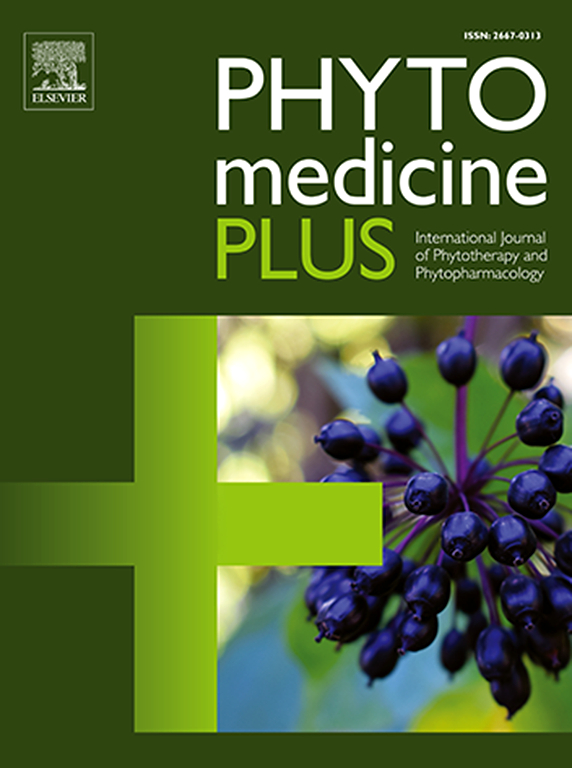Nephroprotective effects of Foeniculum vulgare mill (Apiaceae Family) hydromethanol leaf extract against cisplatin-induced nephrotoxicity on Swiss albino mice
Q3 Pharmacology, Toxicology and Pharmaceutics
引用次数: 0
Abstract
Background
Cisplatin-induced kidney damage is one of the causes of acute kidney injury that increases morbidity. Therefore, it is mandatory to seek effective, affordable, and safe drugs for the prevention and curative effects of kidney toxicity caused by cisplatin. Thus, this study evaluated the effects of Foeniculum vulgare Mill hydro-methanolic crude leaf extract on cisplatin-induced nephrotoxicity in Swiss albino mice.
Methods
The study was conducted on 36 male Swiss albino mice divided into 6 groups (6 mice per group. Group I received distilled water only. Group II was cisplatin control. Group III-V were treated with 100, 200, and 400 mg/kg Foeniculum vulgare Mill respectively. Group VI was treated with 100 mg/kg of silymarin. Group II-VI was administered a single dose of 7.5 mg/kg cisplatin on the 11th day. The mice were anesthetized on the 16th day following the final treatment. Subsequently, kidney function tests and histopathological examination were conducted.
Results
Mice that received cisplatin alone (group II) exhibited a significant decrease in body weight on day 16, an increase in serum kidney markers, a decrease in serum sodium and chloride, an increase in potassium and calcium, an increase in relative kidney weight, and pathological damage to the kidney as compared to the normal control group. The group of mice treated with 200 mg/kg, 400mg/kg of extract, and silymarin control significantly reduced the serum kidney markers and prevented pathological damage to the kidney compared to the negative control group.
Conclusion
The present study's findings revealed that Foeniculum vulgare Mill exhibits nephroprotective activities by ameliorating nephrotoxicity in a dose-dependent manner.

小茴香水甲醇叶提取物对顺铂所致瑞士白化小鼠肾毒性的保护作用
背景:顺铂所致的肾损害是急性肾损伤的病因之一,可增加发病率。因此,寻找有效、负担得起、安全的药物来预防和治疗顺铂所致的肾毒性是势在必行的。因此,本研究评价了小茴香水甲醇粗叶提取物对顺铂所致瑞士白化小鼠肾毒性的影响。方法选用雄性瑞士白化小鼠36只,随机分为6组,每组6只。第一组只接受蒸馏水。第二组为顺铂对照组。iii ~ v组分别以100、200、400 mg/kg的剂量处理普通小茴香。第六组给予水飞蓟素100 mg/kg。II-VI组于第11天给予单剂量顺铂7.5 mg/kg。在最后一次治疗后的第16天对小鼠进行麻醉。随后进行肾功能检查和组织病理学检查。结果与正常对照组相比,单纯顺铂组(II组)患者第16天体重明显下降,血清肾标志物升高,血清钠、氯含量降低,钾、钙含量升高,相对肾重增加,肾脏病理损害明显加重。与阴性对照组相比,200 mg/kg、400mg/kg水飞蓟素组小鼠血清肾标志物明显降低,肾脏病理损伤明显减轻。结论小茴香具有一定的肾保护作用,其减轻肾毒性的作用呈剂量依赖性。
本文章由计算机程序翻译,如有差异,请以英文原文为准。
求助全文
约1分钟内获得全文
求助全文
来源期刊

Phytomedicine Plus
Medicine-Complementary and Alternative Medicine
CiteScore
3.70
自引率
0.00%
发文量
178
审稿时长
81 days
期刊介绍:
 求助内容:
求助内容: 应助结果提醒方式:
应助结果提醒方式:


